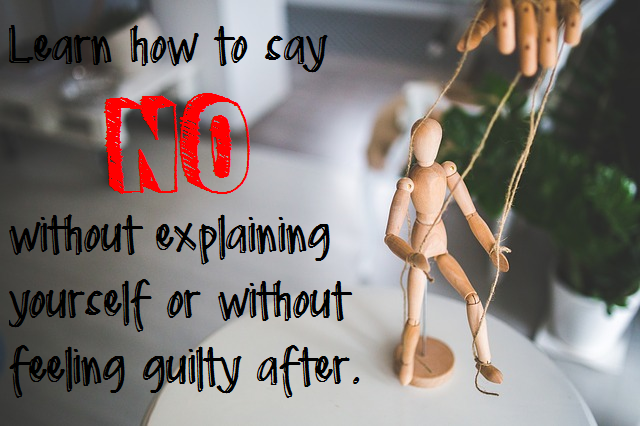“Learn how to say no without explaining yourself or without feeling guilty after.” This simple quote packs a powerful punch when it comes to setting boundaries and empowering oneself to assert their own needs and desires. Many of us struggle with saying no, fearing that we will be seen as selfish or unaccommodating. However, learning to say no is not only necessary for our own well-being but can also improve our relationships and overall quality of life.
The Importance of Saying No
Saying no allows us to prioritize our own needs and goals, whether they be personal, social, or professional. It helps us avoid overcommitting ourselves and becoming overwhelmed with responsibilities and obligations that do not align with our values and objectives. Without the ability to say no, we may find ourselves feeling burnt out, resentful, and even physically ill.
In addition, saying no can also help us establish healthy boundaries in our relationships with others. By clearly communicating our limits and expectations, we can create a more respectful and understanding dynamic where both parties can fulfill their own needs and desires without overstepping each other’s boundaries.
Overcoming the Fear of Saying No
The fear of saying no often stems from a desire to please others and avoid conflict or rejection. However, by constantly saying yes to every request and invitation, we risk sacrificing our own wants and needs and neglecting our self-care. It’s important to recognize that saying no is not a personal attack or a sign of weakness; instead, it’s a sign of self-respect and self-awareness.
Practice makes perfect when it comes to saying no. Start by setting small boundaries with trusted friends or family members and gradually work your way up to more challenging situations. Be firm and concise in your response, but also kind and understanding. Remember that saying no does not require an explanation or justification, and you do not owe anyone an apology for prioritizing your own well-being.
The Benefits of Saying No
Learning to say no can have a profound impact on our mental and emotional health. By setting clear boundaries and asserting our own needs, we can reduce stress, anxiety, and even depression. This, in turn, can lead to improved physical health and overall well-being.
Saying no can also improve our relationships with others. By establishing healthy boundaries and communicating our expectations, we can create more respectful and fulfilling relationships where both parties can thrive and grow.
Conclusion
Saying no may feel scary or uncomfortable at first, but it’s a necessary step in prioritizing our own well-being and establishing healthy boundaries in our relationships. By learning to say no without feeling guilty or explaining ourselves, we can empower ourselves and improve our quality of life. Remember that you are not obligated to say yes to every request or invitation, and that setting boundaries is a sign of self-respect and self-awareness.
So go ahead, practice saying no and reap the benefits of a healthier, happier, and more fulfilling life.
